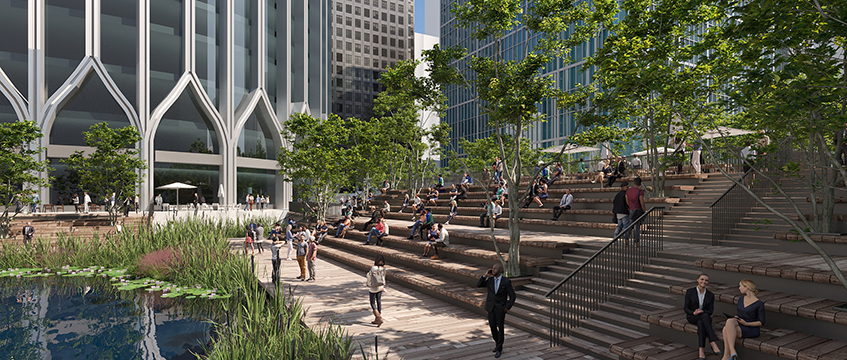COMMENT More than a month on from the launch of the Elizabeth Line, and it has transformed the daily commute for Londoners, slashed journey times between key Underground stations, created additional capacity and overhauled accessibility. It has affected the way we have been planning for housing, retail, food, leisure and offices for several years – investing and gearing up for the increased connectivity.
At Canary Wharf, an extra 1.5m people are now an hour’s commute away and we have seen a marked increase in footfall. At the beginning of June, in one week 1.2m people visited Canary Wharf’s retail and leisure offerings, this is 80% more than the start of the year. And more than 50 retailers at Canary Wharf are doing better today than they did in 2019.
What is driving all of this? As we have been hailing the success of the Elizabeth Line and its benefits, our industry has also for some time been adapting to ensure its relevance for the future. The pandemic has forced us to focus on what matters the most to our customers and to Londoners. We are social animals who want to create bonds, we want to innovate and collaborate and we want to do it in an extraordinary environment. We want diverse, quality experiences, surrounded by community, culture and sustainability. This focus and adaptation, I would argue, is what saved our sector coming out of Covid and has turned it into a thriving sector in 2022.
Working alongside nature
As we have emerged from Covid restrictions, it has become apparent that the most resilient urban areas are those that have taken the above on board. To be robust we need to have nature working with our cities. We need to think more creatively about how parks and water can bring more benefits to those who live, work and play around them. Our retail and F&B experiences need to provide entertainment. High-quality F&B tenants are taking larger spaces as people want more from their environment. Hawksmoor, for example, has recently launched its largest restaurant which allows it to express itself further. It has also created the Lowback Bar to complement the restaurant. This is alongside creative retailers such as Amazon Fresh, and fun experiences where seven days a week you can head out any time for go-karting, electric shuffle, paddle boarding, boating experiences and open-water swimming.
With the Elizabeth Line we are seeing increases in footfall to supplement the Jubilee Line and DLR. It has opened up the east further, but the east has for some time been undergoing transformational change, with strong demand for more residential offerings in a unique and extraordinary environment. That has emboldened us.
In addition to the 3,500 people who already live at Canary Wharf, we are currently constructing another eight residential buildings. Alongside that, there will be new hotels, gyms and schools. The ability to continue to rejuvenate, as people live, work and play here is what makes Canary Wharf an unrivalled community, and has been a huge factor in our resilience and continued increase in footfall this year.
Rethinking green credentials
As we look to the future, our continued resilience will be based upon our industry’s ability to adapt to the needs of our customers to create sustainable places. Our project with Eden (pictured) is an example of how urban cities must rethink their green credentials – adding biodiversity, a green spine, more trees and parks through Canary Wharf. Due to the sheer size and scale of Canary Wharf, we have been able to deliver important initiatives alongside our tenants that have made a huge difference to waste, including coffee cup recycling and a ban on single-use plastic. Tenants today are asked to separate six different materials for recycling and this is likely to grow quickly as we curate further initiatives. M restaurants, which opens in our Newfoundland residential development in July, is striving to be one of the most sustainable restaurants ever, and we will keep collaborating with the firm to find sustainable solutions for the sector.
We look forward to seeing continued progress and benefits from the Elizabeth Line as it continues to be the catalyst for growth to build on the recovery we have enjoyed. The UK sector and its customers face challenges ahead – the cost-of-living crisis continues and finding talent remains tough, but our more diverse and community-led environment makes us more resilient for the future.
Stuart Fyfe is head of retail and F&B leasing at Canary Wharf Group











